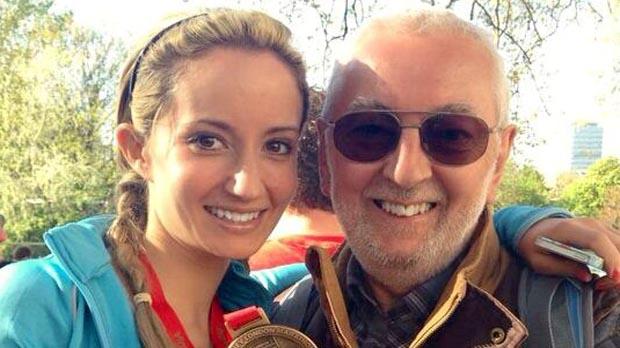
“I think it’s really important that people keep signing up to these type of trials to push research forward.”
Please note - this trial is no longer recruiting patients. We hope to add results when they are available.
This trial is for women whose platinum chemotherapy has stopped working.
It is for women who have:
These cancers are treated in a similar way. When we use the term ovarian cancer in this summary, we are referring to all 3.
Cancer Research UK supports this trial.
Surgery and platinum chemotherapy such as cisplatin and carboplatin are the usual treatments for ovarian cancer. But sometimes treatment stops working. So then you usually have standard treatment if this happens. A treatment commonly used is a chemotherapy drug called paclitaxel. But it might be possible to treat these cancers with other drugs.
In this study, doctors are looking at 2 drugs called olaparib and cediranib. Both drugs are targeted treatments (or biological therapies) that work in different ways.
Olaparib is a PARP inhibitor. PARP is a protein that helps cells to repair. The researchers hope that by stopping PARP from working, cancer cells won’t be able to repair themselves and will die.
Cediranib is tyrosine kinase inhibitor. It stops cancers from being able to make new blood vessels that they need to grow. We know from research that having it with olaparib helps control the cancer for longer.
The aims of the study are to:
The following bullet points list the entry conditions for this study. Talk to your doctor or the study team if you are unsure about any of these. They will be able to advise you.
You might be able to join this study if all of the following apply.
You cannot join this study if any of these apply. You
Cancer related
Medical conditions
Other
This phase 2 study is based in the UK. The researchers need 138 women to take part.
It is a randomised study. You are put into 1 of 3 groups. Neither you nor your doctor will be able to decide which group you are in. You have 1 of the following:

You have paclitaxel as a drip into the vein. The first day of treatment is called day 1. You have it on:
You have treatment in cycles. Each cycle is 4 weeks.
Olaparib and cediranib are tablets you take every day. You take olaparib twice a day and cediranib once a day. The trial team will give you a fresh supply of tablets every 4 weeks on the 1st day of the next treatment cycle.
You have treatment for as long as it is helping you and you can manage any side effects. If you are in the group having paclitaxel and your cancer gets worse, you might be able to have olaparib. Your doctors will speak with you about this if this applies.
You stop treatment if your cancer gets worse. You see the trial team a month later for a final check up. Your doctor will talk to you about other treatment options.
Samples for research
The researchers will ask for samples of your cancer that were removed when you had surgery or a previous biopsy. They also ask to take some extra blood samples. Where possible, you have these at the same time as your routine blood tests.
They plan to look at:
Quality of life questionnaires
The trial team will ask you to fill out a questionnaire before you start treatment and at set times during treatment. The questionnaire will ask about side effects and how you’ve been feeling. This is called a quality of life study.
You see a doctor and have some tests before you can take part. These include:
You see a doctor or research nurse for a checkup and blood tests every
You have a CT or MRI scan every 2 months. After 18 months of treatment, you go to the hospital less frequently for routine checks up. Your doctor can tell you how often these visits are.
The most common side effects of olaparib are:
The most common side effects of cediranib are:
The study doctors will explain all the possible side effects before you join the study.
We have more information about:
Please note: In order to join a trial you will need to discuss it with your doctor, unless otherwise specified.
Dr Shibani Nicum
AstraZeneca
Cancer Research UK
NIHR Clinical Research Network: Cancer
University of Oxford
This is Cancer Research UK trial number CRUKE/15/016.
You can find more details on the OCTOVA study page.
If you have questions about the trial please contact our cancer information nurses
Freephone 0808 800 4040

“I think it’s really important that people keep signing up to these type of trials to push research forward.”